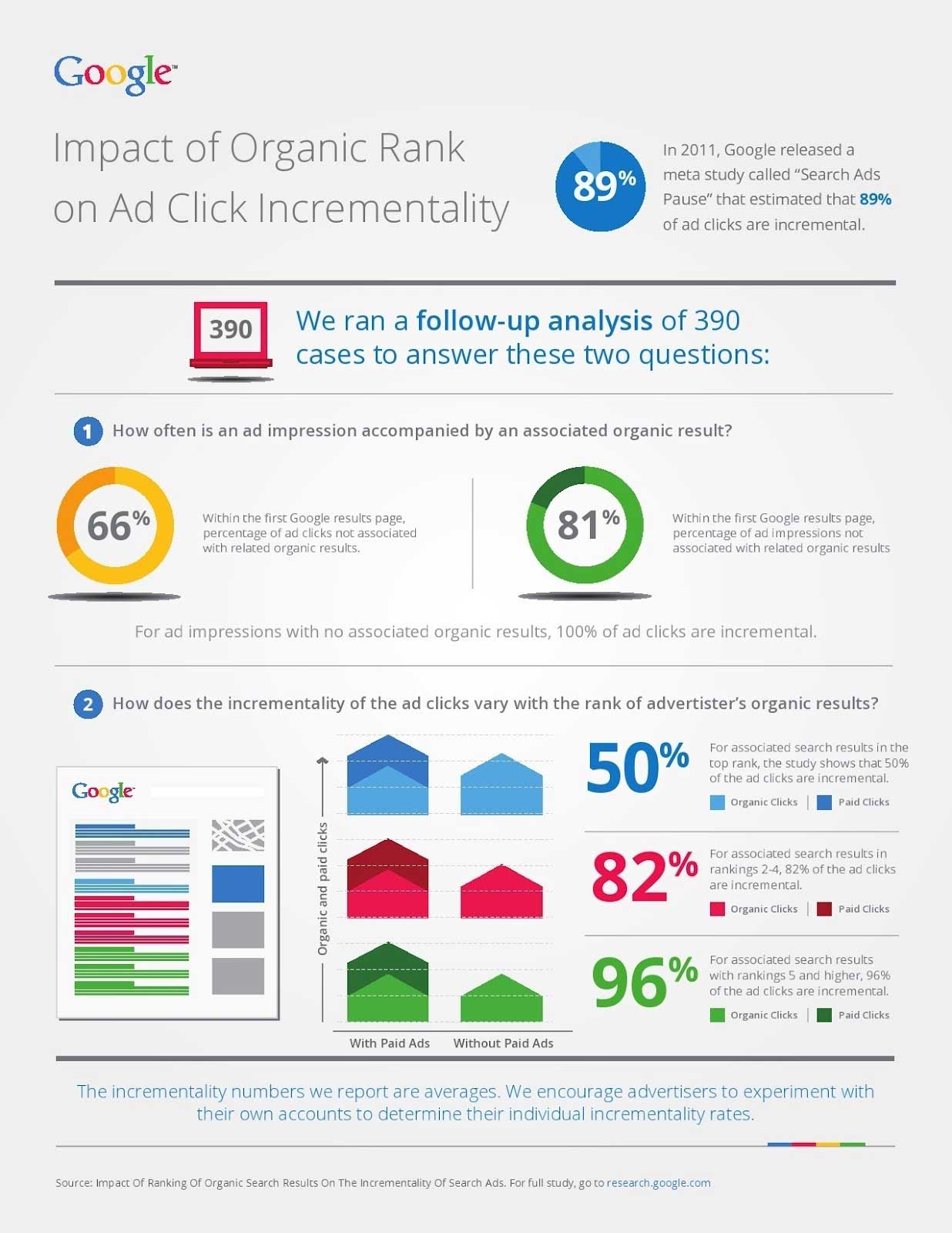One theory that some search marketers hold is that purchasing Google AdWords does not make financial sense because the ads will cannibalize organic listings. The theory supposes that the two forces, AdWords and SEO, are killing each other, and it is a bad strategy to spend money on both at the same time.
As an experiment, Google "paused" search ads to measure the effect that such a cessation had on organic search result clicks. What the study found was that users did not suddenly start clicking the natural results in the absence of AdWords results.
Those findings prove wrong the notion that any significant increase in clicks on organic listings would result if marketers were to decrease spending on PPC ads, with Google deducing that 50% of the time ad clicks are incremental when there’s a corresponding natural listing in the top rank.
Pay-per-click is here to stay
In 2011, when Google claimed that 89% of the traffic generated by search ads is not replaced by organic clicks when ads are paused, it may have been a bit hard for the Internet marketing community to believe that statistic. After all, Google would say something like that to protect the reputation of AdWords, its main money spinner.
Cutting costs on advertising does not increase natural clicks
What the Google experiment tells Google advertisers is this: If you reduce your ad spending to zero, you can’t expect for 89% of those clicks that would have gone to your ads to now be redirected to your Web page results in the natural SERPs.
Also, a Google report a month later showed that, most of the time, paid ads and natural listings seldom appear on the same page together anyway.
How often do paid and natural appear together?
A follow-up Google analysis in March 2012 found that 81% of the time, when there is a paid ad being displayed, no corresponding organic listing is on the first page. (See infographic, below.)
The chances of finding a top-ranked listing paired with its paid counterpart on the same page is very slim. The possibility of the organic listing's appearing on the same page at all as the paid listing is still a very rare occurrence.
If you have the top-ranking natural result, your chances of having a corresponding ad on the same page is just 9%, but that drops down to only 5% if you’re in positions 2-4, or a measly 4% in cases where you have a low-ranking site.
So, if you have a high-ranking website, you have a better chance of having both an ad and an organic result, but that may be related more to bigger budgets than anything else.
Averaging all of the different rankings, the study found that 66% of clicks were not associated with a related organic result.
We need both paid and unpaid results
The lesson to take away from these studies by Google is that search engine advertising is still a vital part of your online marketing portfolio, even if you are ranking highly for your keywords in the natural listings.
As both results (paid and natural) are very unlikely to ever appear together, you will be covering both bases by spending time and money on both.





